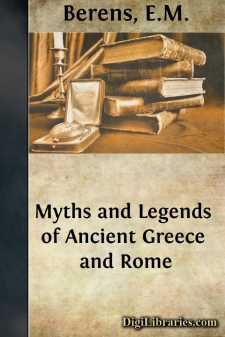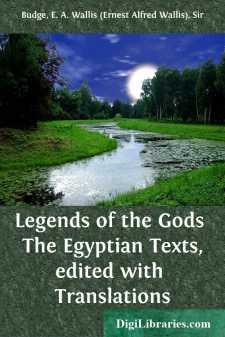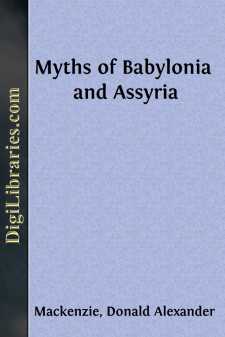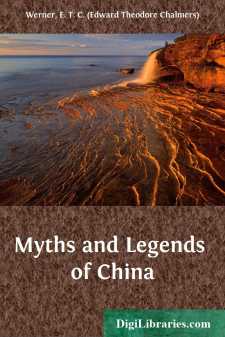Social Science
- Americana 1
- Anthropology 4
- Archaeology 7
- Criminology 2
- Emigration & Immigration 2
- Folklore & Mythology
- General 1
- Slavery 10
- Sociology 10
- Sociology of Religion 2
Folklore & Mythology Books
Sort by:
by:
E.M. Berens
PART I.—MYTHS. INTRODUCTION. Before entering upon the many strange beliefs of the ancient Greeks, and the extraordinary number of gods they worshipped, we must first consider what kind of beings these divinities were. In appearance, the gods were supposed to resemble mortals, whom, however, they far surpassed in beauty, grandeur, and strength; they were also more commanding in stature, height being...
more...
PREFACE The welcome which has been accorded to the volumes of this Series, and the fact that some of them have passed into second and third editions, suggest that these little books have been found useful by beginners in Egyptology and others. Hitherto the object of them has been to supply information about the Religion, Magic, Language, and History of the ancient Egyptians, and to provide editions of...
more...
Introduction Ancient Babylonia has made stronger appeal to the imagination of Christendom than even Ancient Egypt, because of its association with the captivity of the Hebrews, whose sorrows are enshrined in the familiar psalm: In sacred literature proud Babylon became the city of the anti-Christ, the symbol of wickedness and cruelty and human vanity. Early Christians who suffered persecution compared...
more...
PREFACE The period in which the story of The World's Desire is cast, was a period when, as Miss Braddon remarks of the age of the Plantagenets, "anything might happen." Recent discoveries, mainly by Dr. Schliemann and Mr. Flinders Petrie, have shown that there really was much intercourse between Heroic Greece, the Greece of the Achaeans, and the Egypt of the Ramessids. This connection,...
more...
THE CRUCIFIXION OF THE OUTCAST. A man, with thin brown hair and a pale face, half ran, half walked, along the road that wound from the south to the town of Sligo. Many called him Cumhal, the son of Cormac, and many called him the Swift, Wild Horse; and he was a gleeman, and he wore a short parti-coloured doublet, and had pointed shoes, and a bulging wallet. Also he was of the blood of the Ernaans, and...
more...
Chapter I The Sociology of the Chinese In spite of much research and conjecture, the origin of the Chinese people remains undetermined. We do not know who they were nor whence they came. Such evidence as there is points to their immigration from elsewhere; the Chinese themselves have a tradition of a Western origin. The first picture we have of their actual history shows us, not a people behaving as if...
more...







